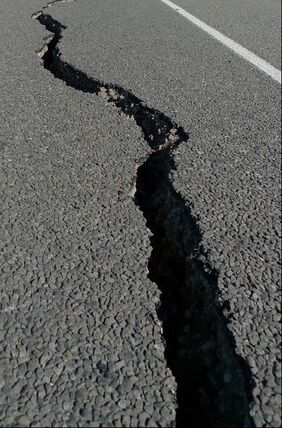Why We Prepare
“there's no harm in hoping for the best as long as you're prepared for the worst." Stephen King, Different Seasons
Fact: There is one emergency responder (police officer, firefighter or EMT) for every 2000 people in King County.
During a widespread disaster there will be hundreds or thousands of simultaneous emergencies occurring throughout Bellevue and King County. Calling 911 will have no effect even if you are able to get through. Most first responders we normally rely on (police, fire, EMT) don't live in our city. They will need to find a way to get to their jobs on potentially unpassable roads once they are satisfied their own families are secure.
It is a fact that if our region is hit with a widespread emergency or disaster, Somerset residents will not receive emergency services for days or weeks. Emergency managers will focus strained resources on areas with high population densities (schools, high-rise buildings, malls, etc.) in order to perform their mandate of providing the greatest good for the greatest number of people. We need to be prepared to support ourselves and each other in the hours, days and weeks following a widespread event.
During a widespread disaster there will be hundreds or thousands of simultaneous emergencies occurring throughout Bellevue and King County. Calling 911 will have no effect even if you are able to get through. Most first responders we normally rely on (police, fire, EMT) don't live in our city. They will need to find a way to get to their jobs on potentially unpassable roads once they are satisfied their own families are secure.
It is a fact that if our region is hit with a widespread emergency or disaster, Somerset residents will not receive emergency services for days or weeks. Emergency managers will focus strained resources on areas with high population densities (schools, high-rise buildings, malls, etc.) in order to perform their mandate of providing the greatest good for the greatest number of people. We need to be prepared to support ourselves and each other in the hours, days and weeks following a widespread event.
|
Scenario: You are sitting at the kitchen table one rainy winter evening, tapping away on your laptop when you begin to sense an unfamiliar vibration. The lamp over the table is swaying. It feels like the whole room is moving slightly. This continues for several seconds. What's going on? Then the first jolt hits. Cupboards fly open dumping their contents. The goldfish bowl hits the floor. The lights go out. The kitchen shifts violently as additional jolts arrive randomly. You are tempted to run outside or to the family room where your other household members are but you remember your training. You duck under the table, crouch down very low and hold on tightly to a table leg so it doesn't slide away from you. You can't see much. The sounds of falling objects echo through the house as it groans from the shifting earth. It doesn't seem to stop. The situation feels dire but you don't panic. You call out to the others and hear the reassuring reply that they have found a place to duck, cover and hold on as well. You have practiced for this. Minutes go by before it finally seems to settle down. Then it becomes very quiet. You recall what steps to perform next and begin to act.
|
We have numerous hazards in our region that have the potential to cause physical harm and disrupt aspects of modern life we take for granted. All of us should be prepared to survive isolated within our living group without power, water, natural gas, access to stores, communication, and transportation for extended periods of time. Take a moment to think about the implications. How will daily life be different when this occurs? How will you respond?
Learning what disasters we are vulnerable to and how to respond, both during an event and immediately following, will greatly improve survivability. The following sites provide a starting point where additional information relevant to our region can be found.
Bellevue Office of Emergency Management
Washington State Emergency Management
Learning what disasters we are vulnerable to and how to respond, both during an event and immediately following, will greatly improve survivability. The following sites provide a starting point where additional information relevant to our region can be found.
Bellevue Office of Emergency Management
Washington State Emergency Management

